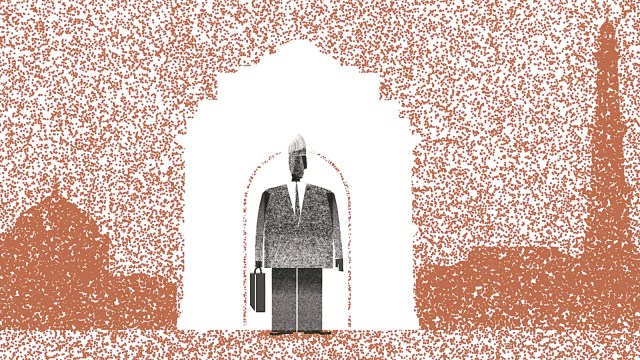
Wherever possible, wherever affordable, Indians are turning their back on the state. Rich, middle class or poor — it does not matter. In Albert Hirschman’s framework, they are exiting the system. For health and education, they are increasingly turning to private providers. In cities like Delhi and Mumbai, even electricity is provided by private discoms. And while water supply is still the preserve of state bodies, many households have water filters — as the quality of water supplied is suspect — and have to rely on tankers to ensure adequate supply. Most middle-class homes/societies also tend to have their own security guards. Perhaps the few state-provided goods/services that are routinely used are drainage systems, garbage pickup, public transport and roads, though their condition makes one more likely to desire private alternatives. If we already pay for most goods and services, then why not for clean air?
Before you dismiss the idea as outlandish, here are some rough calculations.
In Punjab, average yields of paddy are around 2.5 to 3 tonnes per acre. The grain-to-straw ratio is roughly 1:1, which translates to 2.5 to 3 tonnes of straw per acre. With an area under cultivation of 32.4 lakh hectares, Punjab needs to dispose of roughly 20-24 million tonnes of stubble. Now, there are various estimates of the costs involved in cutting, raking, packaging, and storing bales. As per Ramesh Chand and Shweta Saini (2023), Rs 1,000 to Rs 1,200 per tonne is likely to be sufficient for the process. A study from CEEW (2021) had estimated the cost at Rs 1,330 per tonne. This included the cost for transporting the stubble from the farm up to 15 km. Updating these estimates for inflation, a study from CSTEP (2024) pegged the cost at Rs 1,620 per tonne.
This implies that the cost of procuring all the stubble in Punjab is likely to range between Rs 2,000 and Rs 4,000 crore. This cost has to be borne by someone. And since neither the farmer nor the government appears ready to bear this entire burden, perhaps private individuals can shoulder some of it.
Stubble burning affects a vast region. But let’s look at just those living in NCR. In the absence of Census data, take electricity connections. Delhi has about 60 lakh domestic electricity consumers. Add to this the numbers for Gurugram, Noida, Faridabad and Ghaziabad. At perhaps around 80 lakh households, the cost of clearing the stubble works out to Rs 2,500 to Rs 5,000 per household per year. For only the richest 1 per cent, it works out to between Rs 20,000 and Rs 40,000 per month. Somewhere in the middle might be acceptable. All households can contribute, but some free riding will occur. This isn’t that high considering the cost pollution imposes.
Don’t scoff at this. Rather than the state intervening, and in this case failing, this is a Coasean alternative which relies on private bargaining between the parties to address externality problems. In In Service Of The Republic, Vijay Kelkar and Ajay Shah argue that imposing an externality upon a person calls for a negotiation. Get the parties to the table and negotiate.
However, there are no clear property rights. And the transaction costs are high. Perhaps the two sides can enter into an agreement that works for all until a more permanent, long-term solution can be figured out. After all, even the farmers in Punjab are affected by pollution. But perhaps under this framework, their cost-benefit analysis will change. Perhaps they will be willing to incur part of the costs in clearing the stubble. Shruti Rajagopalan has also written about a Coasean alternative and proposed a way forward by creating a tradeable crop residue burning permit.
Considering that India has already flipped the script — shifting to public delivery of private goods — it may be time to experiment with the opposite — private delivery of public goods. Perhaps some Delhi-based industrialist can help organise this.
The writer is associate editor, The Indian Express. ishan.bakshi@expressindia.com